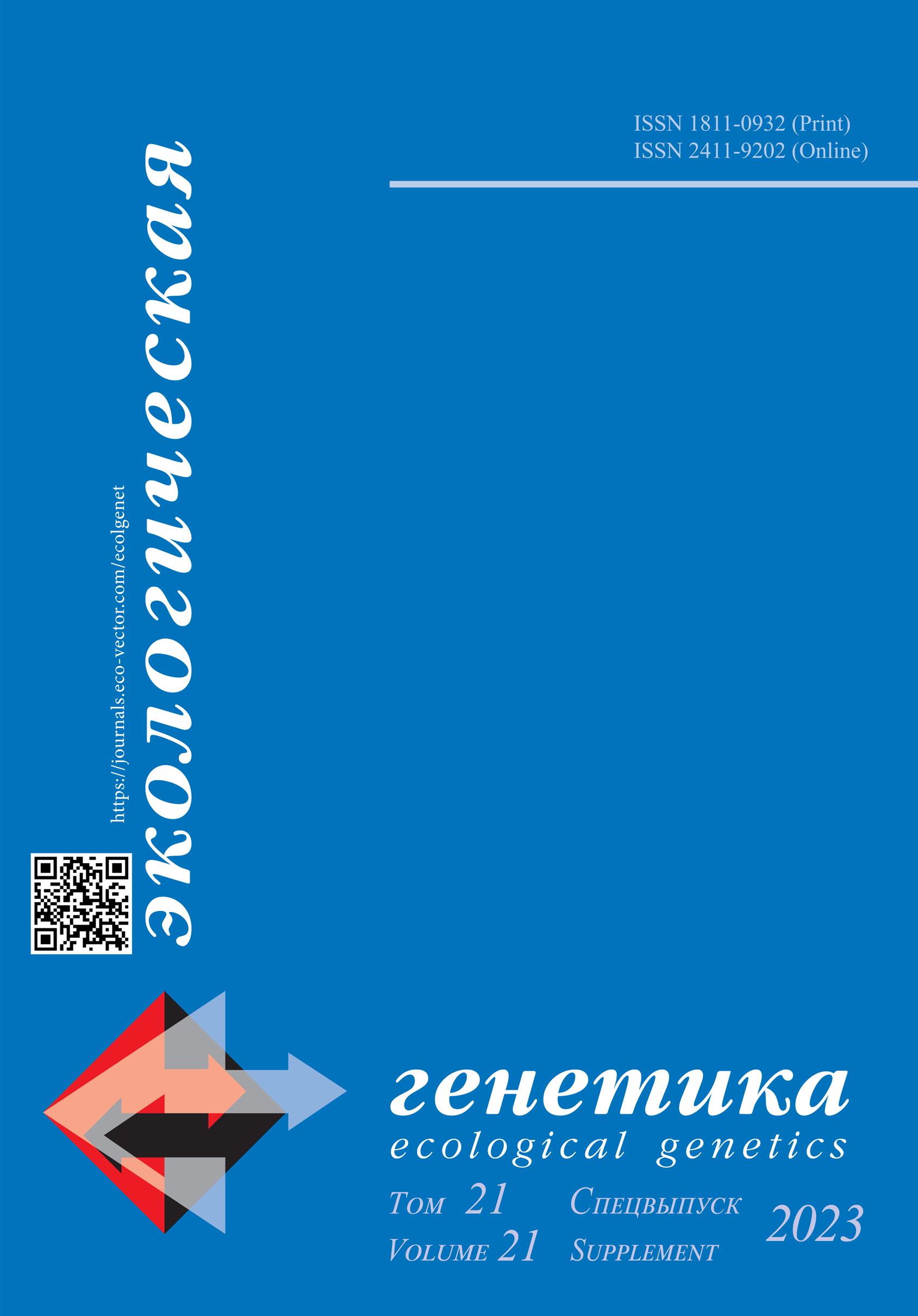Bioengineering eggplants: a deep dive into SmHQT and phenolic acid biosynthesis
- Authors: Kaushik P.1, Meenakshi S.2, Anil K.2
-
Affiliations:
- Instituto de Conservación y Mejora de la Agrodiversidad Valenciana, Universitat Politècnica de València
- Ranchi University
- Issue: Vol 21 (2023): Спецвыпуск
- Pages: 34-35
- Section: Genetically modified organism. The Нistory, Achivements, Social and Environmental Riscs
- Submitted: 17.08.2023
- Accepted: 26.08.2023
- Published: 04.12.2023
- URL: https://journals.eco-vector.com/ecolgenet/article/view/568585
- DOI: https://doi.org/10.17816/ecogen568585
- ID: 568585
Cite item
Full Text
Abstract
Eggplants, known scientifically as Solanum melongena L., are renowned for their health benefits, largely attributed to phenolic acids. Chlorogenic acid stands out as one of the most prevalent phenolic acids in eggplants. The enzyme hydroxycinnamoyl CoA-quinate transferase (SmHQT) plays a pivotal role in the production and concentration of this acid in the fruit. However, until this study, the exact function and influence of SmHQT on the eggplant’s composition remained elusive [1–3].
This research aimed to explore SmHQT’s role by overexpressing it in the eggplant’s flesh using agroinfiltration, a technique that transiently introduces genes into plants. This method offers insights into potential changes in the plant’s chemical makeup. Advanced techniques like quantitative reverse transcription-polymerase chain reaction (qRT-PCR) and high-performance liquid chromatography (HPLC) revealed that the chlorogenic acid content in the genetically altered eggplants was over twice that of the unaltered ones.
The study also investigated the cascading effects of this overexpression. The qRT-PCR results showed variations in the expression of genes linked to the chlorogenic acid pathway, hinting at SmHQT’s wider role in phenolic acid biosynthesis in eggplants. Comprehensive analyses of protein interactions and cis-regulating elements were undertaken to grasp SmHQT’s full impact.
Phenolic acids, like chlorogenic acid, offer therapeutic benefits against conditions such as diabetes, cancer, and arthritis in humans. In plants, they enhance natural defenses against pests and diseases. While there have been attempts to boost the phenolic acid content in eggplants using genes from wild variants, this study’s approach proved more effective.
Another notable achievement of this research was the introduction of an improved agroinfiltration protocol. This method is promising for future studies focused on transient gene expression in fruits, facilitating swift genetic modification prototyping. In essence, this research underscores the immense potential of bioengineering in augmenting the nutritional profiles of crops by enhancing their inherent phytochemicals.
Keywords
Full Text
Eggplants, known scientifically as Solanum melongena L., are renowned for their health benefits, largely attributed to phenolic acids. Chlorogenic acid stands out as one of the most prevalent phenolic acids in eggplants. The enzyme hydroxycinnamoyl CoA-quinate transferase (SmHQT) plays a pivotal role in the production and concentration of this acid in the fruit. However, until this study, the exact function and influence of SmHQT on the eggplant’s composition remained elusive [1–3].
This research aimed to explore SmHQT’s role by overexpressing it in the eggplant’s flesh using agroinfiltration, a technique that transiently introduces genes into plants. This method offers insights into potential changes in the plant’s chemical makeup. Advanced techniques like quantitative reverse transcription-polymerase chain reaction (qRT-PCR) and high-performance liquid chromatography (HPLC) revealed that the chlorogenic acid content in the genetically altered eggplants was over twice that of the unaltered ones.
The study also investigated the cascading effects of this overexpression. The qRT-PCR results showed variations in the expression of genes linked to the chlorogenic acid pathway, hinting at SmHQT’s wider role in phenolic acid biosynthesis in eggplants. Comprehensive analyses of protein interactions and cis-regulating elements were undertaken to grasp SmHQT’s full impact.
Phenolic acids, like chlorogenic acid, offer therapeutic benefits against conditions such as diabetes, cancer, and arthritis in humans. In plants, they enhance natural defenses against pests and diseases. While there have been attempts to boost the phenolic acid content in eggplants using genes from wild variants, this study’s approach proved more effective.
Another notable achievement of this research was the introduction of an improved agroinfiltration protocol. This method is promising for future studies focused on transient gene expression in fruits, facilitating swift genetic modification prototyping. In essence, this research underscores the immense potential of bioengineering in augmenting the nutritional profiles of crops by enhancing their inherent phytochemicals.
About the authors
P. Kaushik
Instituto de Conservación y Mejora de la Agrodiversidad Valenciana, Universitat Politècnica de València
Email: prakau@doctor.upv.es
ORCID iD: 0000-0002-3145-2849
Spain, Valencia
S. Meenakshi
Ranchi University
Email: meenakshiskkr@gmail.com
department of chemistry
India, RanchiK. Anil
Ranchi University
Author for correspondence.
Email: akumardelta2013@gmail.com
department of chemistry
India, RanchiReferences
- Kaushik P, Kumar P, Kumar S. Enhancement of chlorogenic content of the eggplant fruit with eggplant hydroxycinnamoyl CoA-quinate transferase gene via novel agroinfiltration protocol. Pharmacognosy Magazine, (2020);16(Suppl 3):S450–S454.
- Kaushik P. Standardisation of an Agroinfiltration Protocol for Eggplant Fruits and Proving its Usefulness by Over-expressing the SmHQT Gene. Preprints. 2019;2019080129. doi: 10.20944/preprints201908.0129.v1
- Kaushik P, Andújar I, Vilanova S, et al. Breeding vegetables with increased content in bioactive phenolic acids. Molecules. 2015;20(10):18464–18481.
Supplementary files










